

Luxury Rehab: Costs and Expectations
Considering a high-end treatment experience that feels safe, comfortable, and discreet? Learn how top-rated luxury rehab centers combine evidence-based addiction care with private, resort-style amenities, what they really cost, and what to expect day to day in treatment. Explore nearby options and funding pathways so you can choose the setting that best supports long-term recovery for you or your loved one.
Best Luxury Rehab Centers
| Name / Address / Rating | Description | Treatments / Payments / Programs | Review / Contact | Images |
|---|---|---|---|---|
Cave Creek, AZ 1
Top 10 in Luxury Accommodations
Rehab Score
Our Rehab Score is designed to make it easier for you to find the best treatment centers. We combine overall ratings with recent feedback to create a score that reflects a center’s quality right now.
8.90 / 10 | Soberman’s Estate, located in Cave Creek, Arizona, is an alcohol and drug rehab center that provides addiction treatment services to adult men, professionals, and public figures. They are a discrete, luxury rehab for individuals aged 30 to 80 years old. This location caps their treatment center at ten men at a time. As one of leading inpatient re | Treatments Programs Payment Options | Soberman’s Estate was everything I needed for my recovery. The staff, the program, physical activity and culinary experience were top notch and essential. The program is well designed and worked better than I expected. The staff is remarkable – professional, considerate and genuinely caring. My time there and being removed from alcohol for five weeks was everything I needed to remove my craving for alcohol. Soberman has changed my life in ways I never could have imagined. I feel confident, secure and grateful for my new life. I have reconnected with my family and friends. Thank you Soberman.
George B.
3 months ago
Yes, very professional staff, treatment, therapist, chefs were good! even the home cook did the best she could, and loved the horses of Course! Saturday morning hiking was fun to explore the trails of the nearby mountain area!
John E Williams
4 months ago
I had a great experience overall and would recommend it to anyone wanted to jump start their sobriety!!
Kevin Crawford
4 months ago
| 
5 5 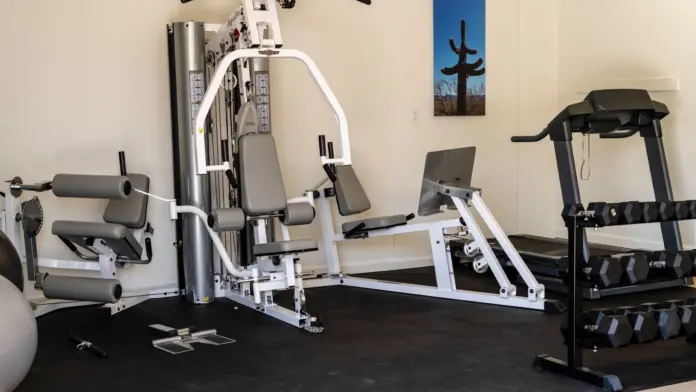
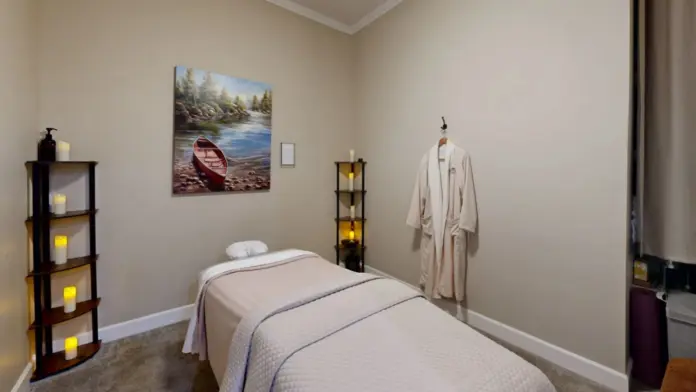


|
Clarksville, IN 2
Top 10 in Luxury Accommodations
Rehab Score
Our Rehab Score is designed to make it easier for you to find the best treatment centers. We combine overall ratings with recent feedback to create a score that reflects a center’s quality right now.
8.81 / 10 | Avenues Recovery Center in Clarksville, Indiana, is an inpatient drug and alcohol detox and rehab center. They strive to provide individuals receiving treatment with a loving environment and attentive medical care. You’ll be away from toxic environments and triggers and have the opportunity to focus on developing life skills that will support you | Treatments Programs Payment Options | I highly recommend Avenues. The staff is absolutely amazing and very helpful. They treat you like family. Star, Jenny, Tarah, Paige, Monica, and both Amanda’s really helped me through.
Dana Key
3 weeks ago
It was a great experience great people thank you .
Jessica Fulkerson
3 weeks ago
This facility has been life saving. I am so grateful to be able to have gotten the help they had offered.
Nikki
3 weeks ago
| 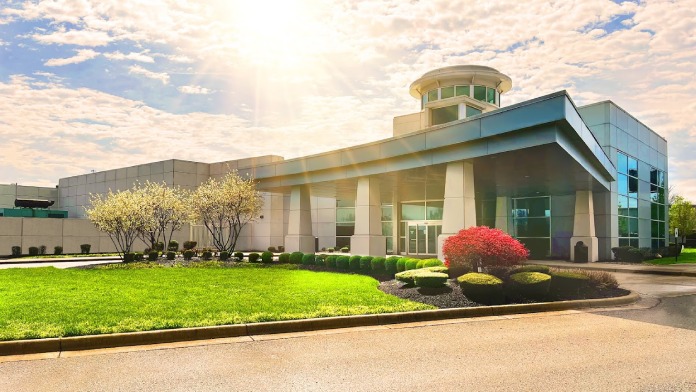
4 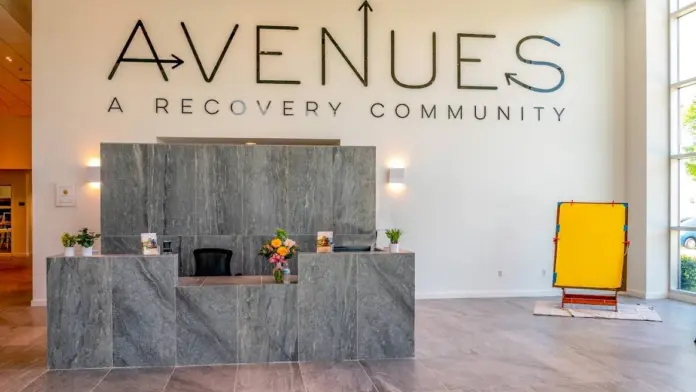
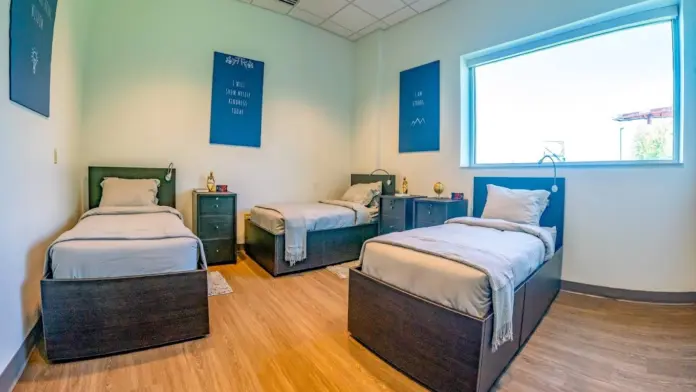
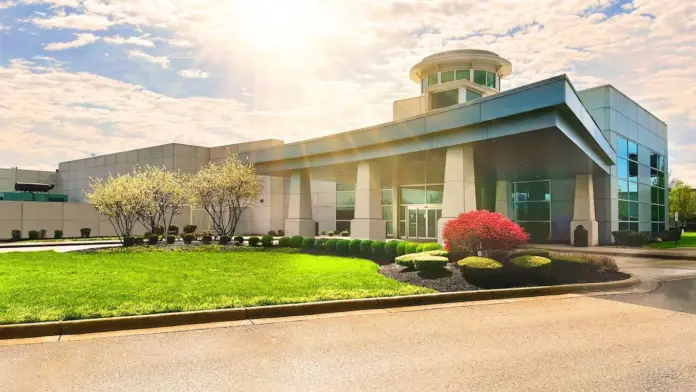
|
Simi Valley, CA 3
Top 10 in Luxury Accommodations
Rehab Score
Our Rehab Score is designed to make it easier for you to find the best treatment centers. We combine overall ratings with recent feedback to create a score that reflects a center’s quality right now.
8.81 / 10 | All In Solutions Detox in Simi Valley is one of the best ranked inpatient detox facilities in California providing safe, medically supervised care for individuals beginning their recovery from drug or alcohol addiction. As part of the All In Solutions Behavioral Health network, this facility serves as the first step in a full continuum of care. Cli | Treatments Programs Payment Options | I had an amazing experience and really enjoyed getting to know the staff and my fellow peers in groups. The staff really cares about your recovery and you will feel better every day. The food is good too lol.
Desiree
1 week ago
I loved it here it was a great place to be would definitely recommend to anyone wanting to get sober thank yall!
Kyle Robinson
1 week ago
i owe it all to this place. 100% recommend if you’re serious about your recovery. thanks AIS ❤️
maddy chacos
1 week ago
| 
5 5 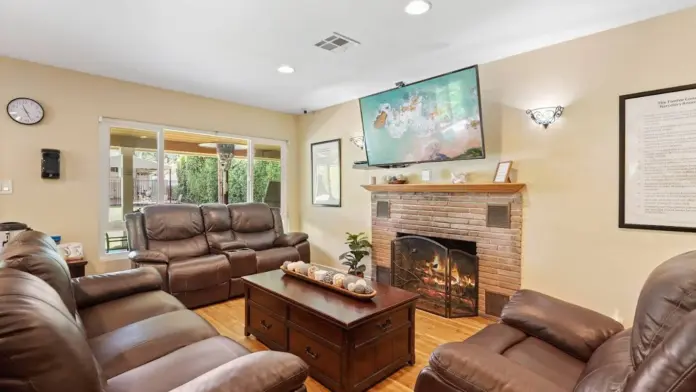

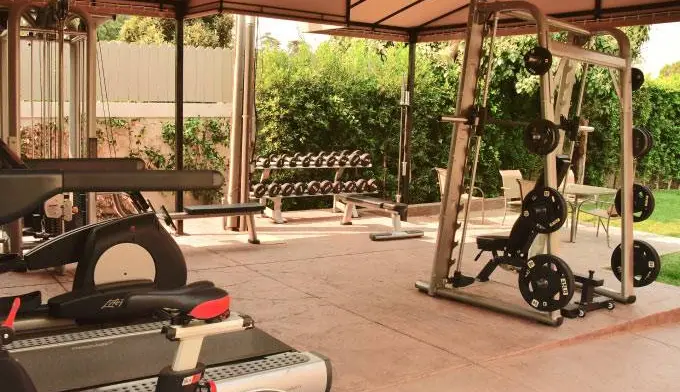
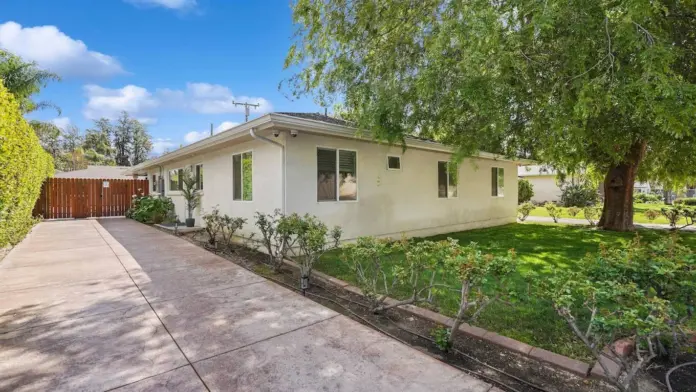
|
Hurst, TX 4
Top 10 in Luxury Accommodations
Rehab Score
Our Rehab Score is designed to make it easier for you to find the best treatment centers. We combine overall ratings with recent feedback to create a score that reflects a center’s quality right now.
8.80 / 10 | Symetria – Hurst Outpatient Rehab and Suboxone Clinic in Hurst, Texas, is a private drug rehabilitation clinic for adults. One of the best outpatient rehab centers in Texas, Symetria offers various withdrawal medications to help clients get started with their recovery journey. You’ll also have access to treatments such as the intensive outp | Treatments Programs Payment Options | Symetria is unbelievably amazing!!! The Hurst staff is phenomenal!!! I can’t imagine that another location has a better staff. A special shout out to Deborah, Benjamin, and Samantha of course. You all are doing amazing, amazing, selfless work. You all are very special to so many!!!
Vernon Godsey III
3 months ago
Huge shout out to the team at symetria who make me feel like family I appreciate everything they do and huge shout out to Osagie for helping me! He is AWESOME!!! I love you symetria❤️❤️❤️
Chloe Roseman
4 months ago
BEST PLACE EVER. I have tried various other doctors/clinics and none of them even begin to compare to this one. The staff here is absolutely amazing. I can’t even make a single complaint. Dr Son is the best as well. He explains everything and you truly feel like he understands you. I can proudly say this, this place saved my life. If you or someone you know needs help getting off opiates do it right the first time and come here. You won’t be disappointed. If you are specifically struggling with fentanyl please don’t waste your time with other ways. I have tried 6 other methods from lazer therapy to having the earpiece to suboxone. Methadone is the key to our current fentanyl crisis. This clinic makes recovery possible again!
Mason
4 months ago
| 
5 5 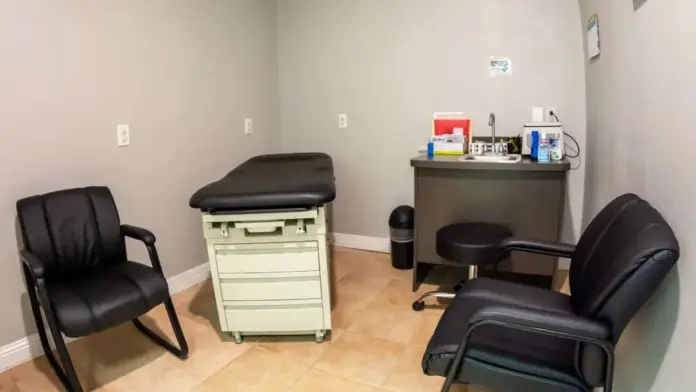
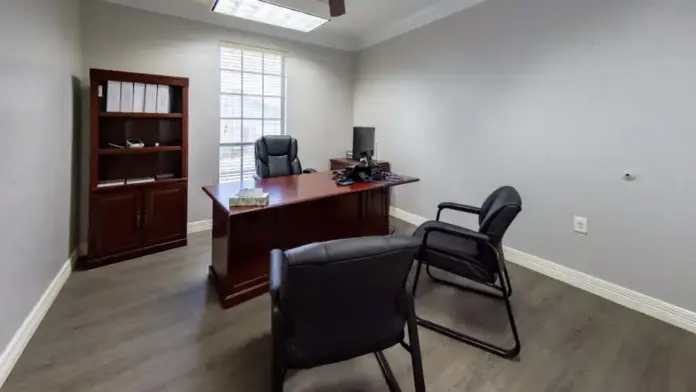
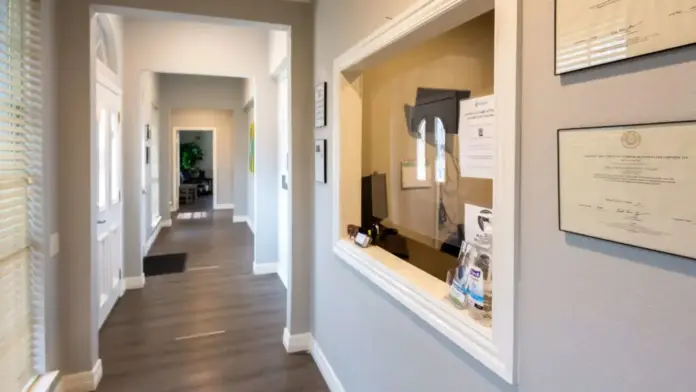
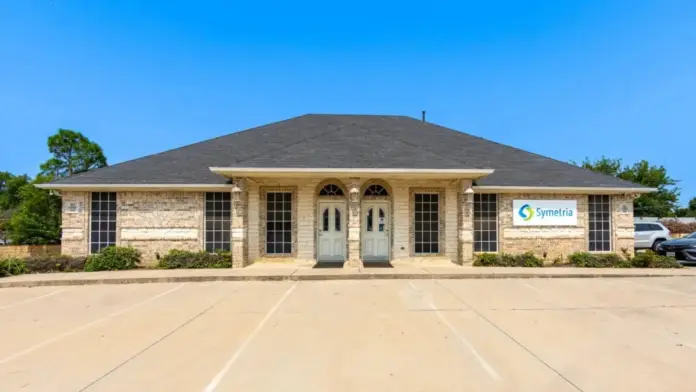
|
Boynton Beach, FL 5
Top 10 in Luxury Accommodations
Rehab Score
Our Rehab Score is designed to make it easier for you to find the best treatment centers. We combine overall ratings with recent feedback to create a score that reflects a center’s quality right now.
8.80 / 10 | All In Solutions Counseling Center is a mental health center and addiction treatment program in Boynton Beach, Florida. They provide a partial hospitalization program, an intensive outpatient program (IOP), an outpatient program, medication-assisted treatment, and mental health care for adults with substance use disorder. All In Solutions Counseli | Treatments Programs Payment Options | The staff were amazing. Can really tell the people care about you. Amazing people who have lived through the experience and recovery they are trying to show all of us. Can’t recommend it enough.
Tyler
1 week ago
such a good facility. love all the staff! nicole is an awesome therapist!
Sydney Shaw
1 week ago
All In Solutions received me with open arms for the second time. The staff make sure you receive a high quality care treatment. I’m grateful for the love and care . God continue to bless everyone.Thank you for you do .
Jianil Richiez
3 weeks ago
| 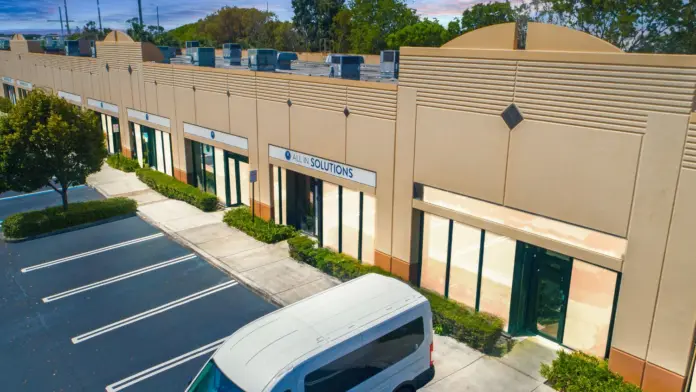
4 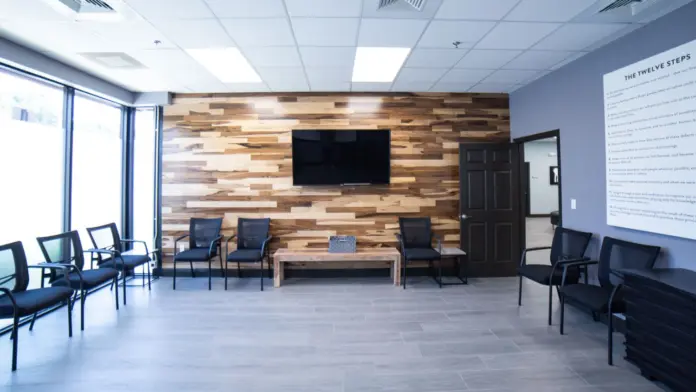
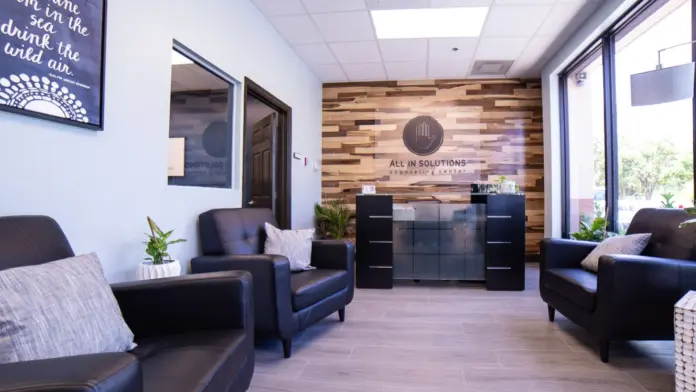
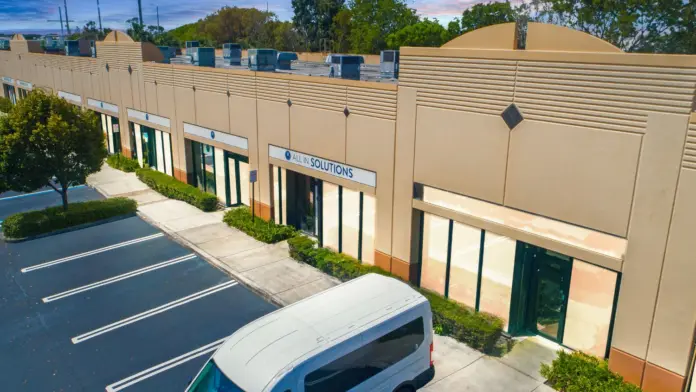

|
Galloway, NJ 6
Top 10 in Luxury Accommodations
Rehab Score
Our Rehab Score is designed to make it easier for you to find the best treatment centers. We combine overall ratings with recent feedback to create a score that reflects a center’s quality right now.
8.80 / 10 | Boca Recovery Center – Galloway is a drug and alcohol rehab in Galloway, NJ. They provide inpatient addiction treatment and medical detox. Boca Recovery’s New Jersey Drug & Alcohol Rehab, located in Galloway, New Jersey offers residential addiction treatment, medical detox, and medication-assisted treatment in an immersive treatment s | Treatments Programs Payment Options | My sobriety journey started at Boca. The staff members including Miss Tracey, Hannah and Kevin their alumni coordinator have completely flipped the trajectory of my life. I was immediately taken in with open caring arms and they made my detox process as comfortable as possible. During my stay, Joe was extremely helpful in helping me slowly gain my appetite back and start to feel stronger and was so attentive to my nutritional health. Nurse Patrick was so kind to me during my intake and Kevin still reaches out to me very often to check in and is so helpful in my recovery process. I owe gaining my life, my strength and my family back to Boca and I am eternally grateful❤️
Rianna Dean
1 month ago
Great facility with even greater staff. One of the best rehab/detox in South, NJ.
Donna Kratzer
1 month ago
Very comfortable stay
Will
1 month ago
| 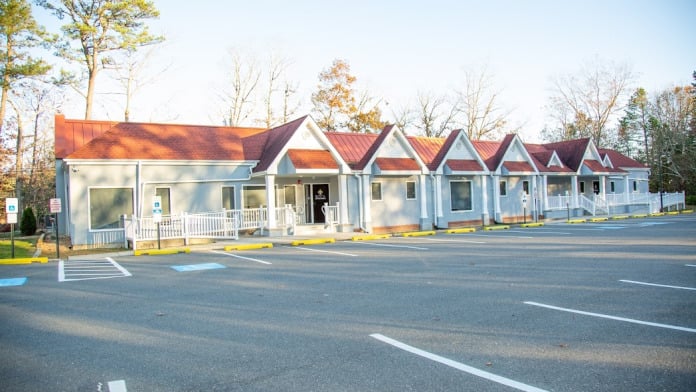
7 7 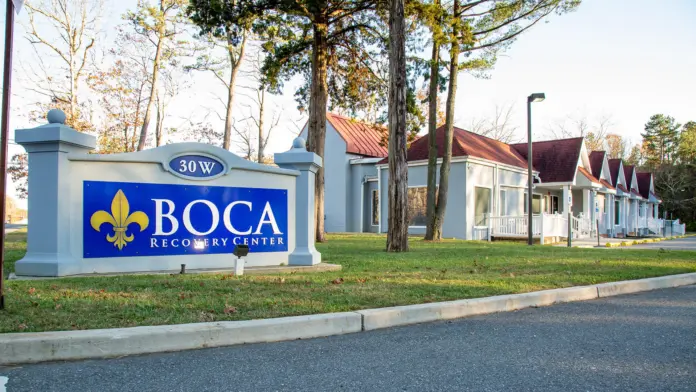
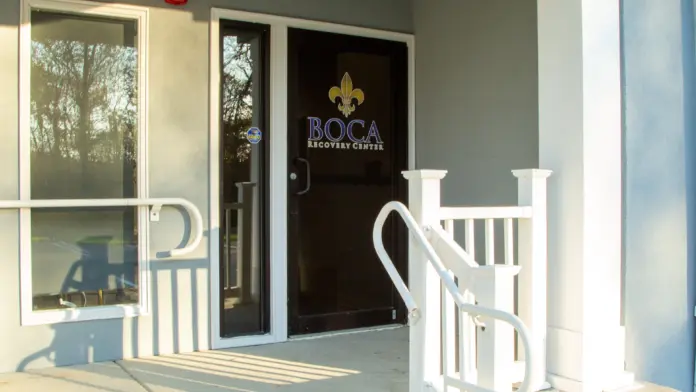
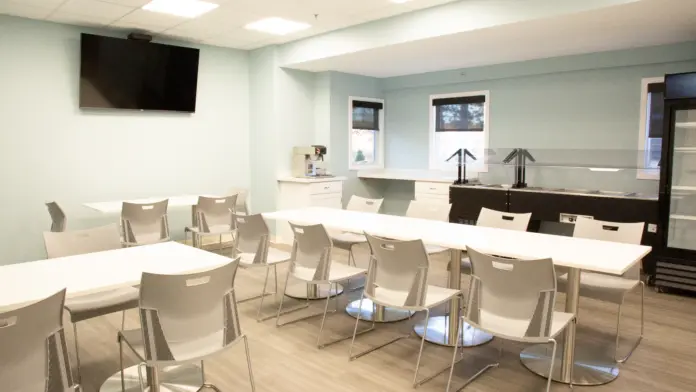
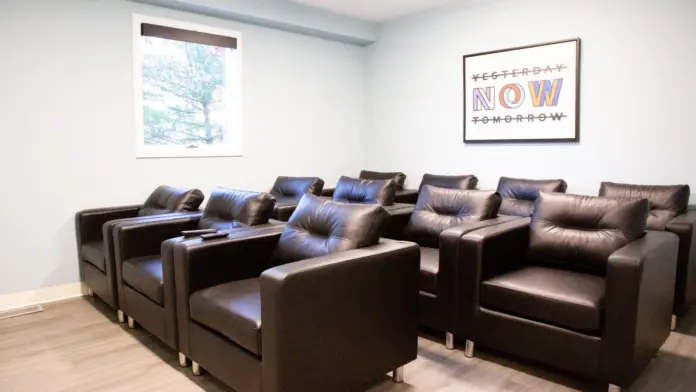
|
Bloomington, IN 7
Top 10 in Luxury Accommodations
Rehab Score
Our Rehab Score is designed to make it easier for you to find the best treatment centers. We combine overall ratings with recent feedback to create a score that reflects a center’s quality right now.
8.78 / 10 | The Boca Recovery Center is a luxury alcohol and drug rehab center for adults in Bloomington, Indiana. They specialize in cutting edge addiction treatment provided in a residential setting. One unique part of this alcohol and drug rehab in Indiana is the peaceful, secluded setting. If recovering in a clinical hospital setting doesn’t sound very a | Treatments Programs Payment Options | This place damn near saved my life. Staff is amazing and care almost on a personal level. Nurses are knowledgeable and groups are interactive informative and inclusive.
Edit*
Shout out to Beth, Nora and Carter! Made a great impact on my recovery!
V Montez
1 week ago
I learned a lot from this place. They’re really good at bringing everything out that you need to say in under to recovery. Thanks for everything. You guys have changed my life
Megan Tipton
2 weeks ago
Boca recovery was a magical experience during a very difficult time that will always hold a special place in my heart. From top to bottom, the support of staff is second to none.
Tyler and Carrie, Carter, Alexx, Ashley, Brooke, Michelle, Meagan, and the rest of the techs are phenomenal. My therapist January opened my eyes to perspectives I had been missing my entire life and Justin the case manager worked tirelessly from the start all the way until his wife gave birth on my last day to make sure I was set up for success.
The nurses are amazing and the medical attention someone needs during this portion of their recovery is 110% offered around the clock.
The place has everything you need from a gym to recreational activities, spacious beds with luxury amenities. And one cannot go without mentioning the chef, Tim. You won’t find better “rehab food” and conversation.
I owe a thank you to the director John for his efforts to get me into a great program after my stay was over.
To anyone struggling with with mental health and/or addiction, I cannot shout praises loud enough for what this program has to offer each and every client that walks through those doors.
If you want a way out, there’s no better place to check in.
Alex K
1 month ago
| 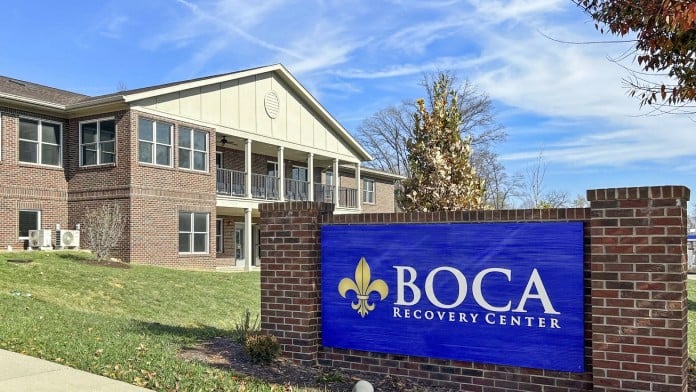
6 6 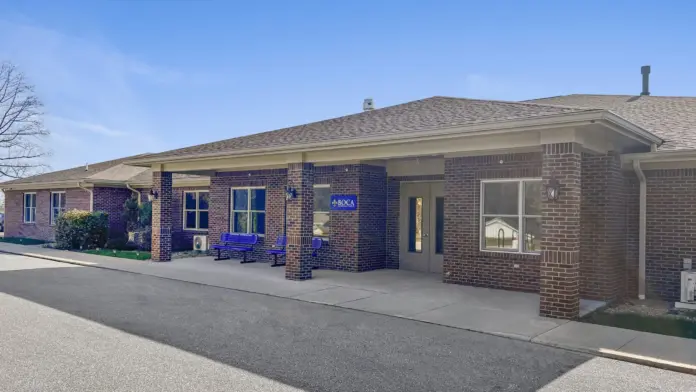
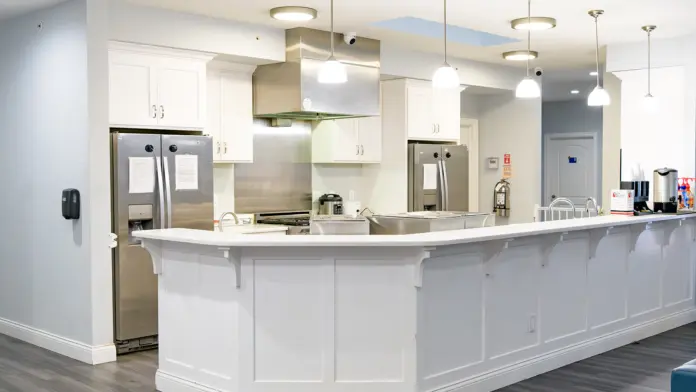
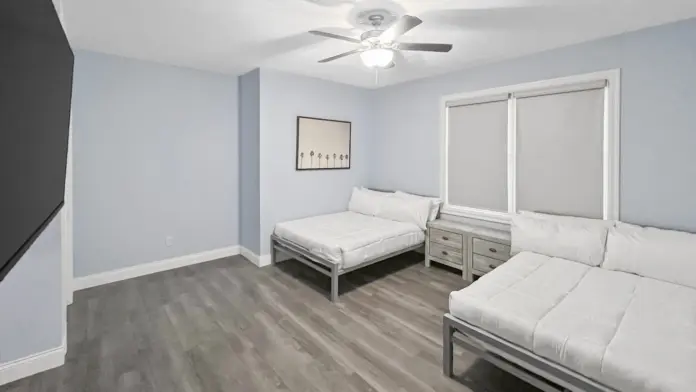
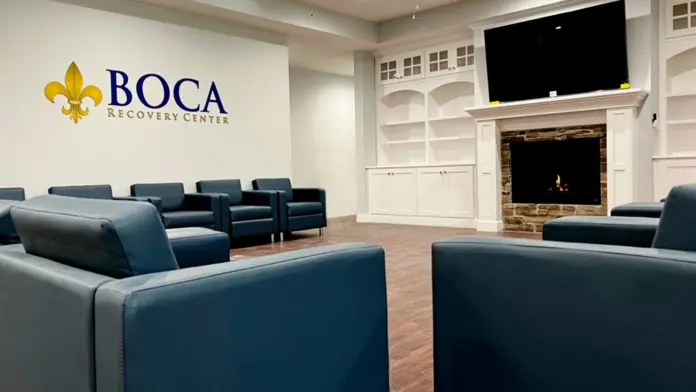
|
Woodbury, TN 8
Top 10 in Luxury Accommodations
Rehab Score
Our Rehab Score is designed to make it easier for you to find the best treatment centers. We combine overall ratings with recent feedback to create a score that reflects a center’s quality right now.
8.77 / 10 | If you’re looking for a Christian-based men’s drug rehab center, S2L Recovery in Woodbury, Tennessee, might be the place for you or your loved one. Located at the top of Short Mountain, and overlooking the green hills of Middle Tennessee, this residential and detox clinic boasts a one-to-one staff/patient ratio so there’ll always be someone t | Treatments Programs Payment Options | Coming from Canada, I was hesitant. But God knew that S2L was exactly where I needed to be. At 64 years of age, I was able to discover my true identity, purpose, and mission in Christ. They help you in trying to get clean and sober for sure. But what S2L and the staff are all about is the Gospel of Jesus Christ. That’s why it is so successful.
TIM TANNER
4 months ago
I’ve had the privilege of seeing the life-changing impact this ministry has on countless men & I can’t recommend it highly enough! God has His Hand on this ministry & I’m honored to see the Lord work in these men!
Hunter Stanfield
4 months ago
Come here with a open mind and heart. It can and WILL change your life in all ways. Trust the process and trust God! Could go on and on about how amazing this place, I’ll forever be grateful!
Trevor Woodard
4 months ago
| 
6 6 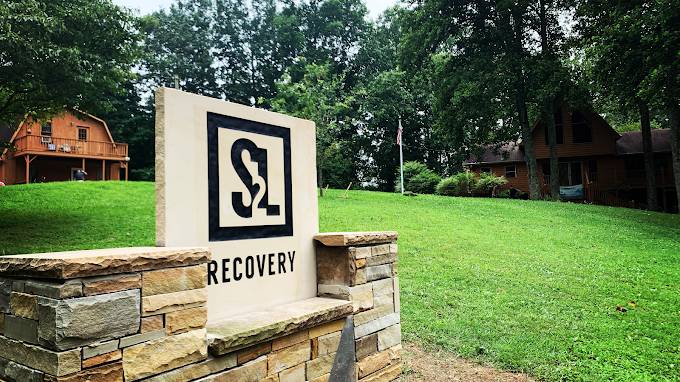

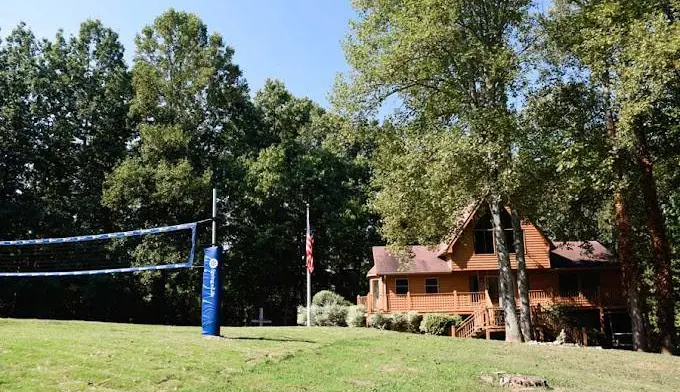

|
Levittown, PA 9
Top 10 in Luxury Accommodations
Rehab Score
Our Rehab Score is designed to make it easier for you to find the best treatment centers. We combine overall ratings with recent feedback to create a score that reflects a center’s quality right now.
8.76 / 10 | The Steps To Recovery addiction treatment center is situated in Levittown, Pennsylvania. At this drug rehab center, patients can expect to engage in a unique treatment approach that focuses on helping individuals recover through authenticity, intimacy, community connection, and transparency. Steps to Recovery offers a serene and private environ | Treatments Programs Payment Options | Good place, great housing
Nicole Rivera
2 months ago
Amazing support network and great staff lovely time with my stay at STR buck
William Perry
3 months ago
My experience at Steps to Recovery has been great for the most part, the people and the environment are very welcoming and comforting. I have had some issues that have come up, but they usually get resolved. My only main gripe is with some of the other clients at the community living house fail to clean up after themselves, and some do not know self control. But, the staff here is very professional and easy to talk to. I find that the opportunities here for my recovery journey are pretty good, although I’d like access to more holistic therapy resources. I’ve actually personally facilitated a Dharma meeting and will facilitate more in the future. I appreciate my time here at STR and am excited for the future with them.
Jerry Davis
3 months ago
| 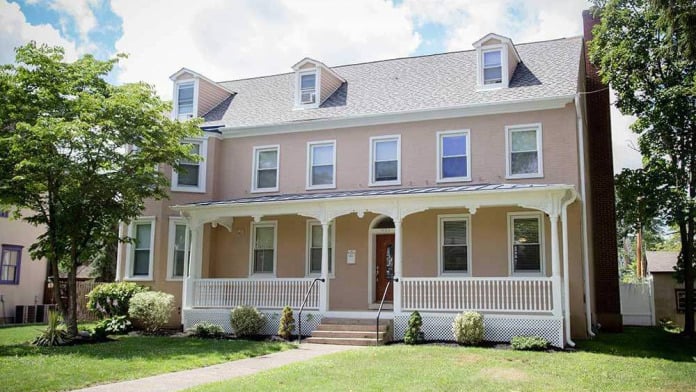
6 6 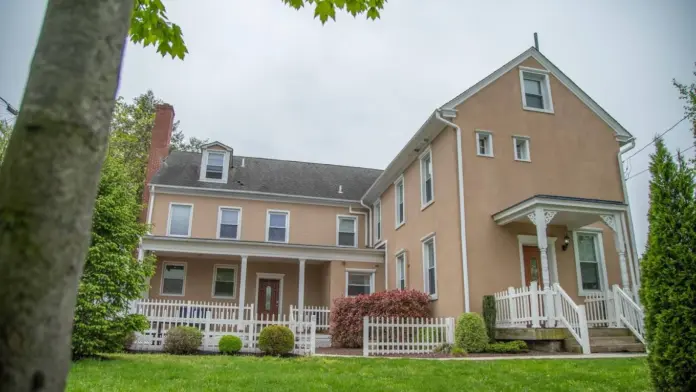
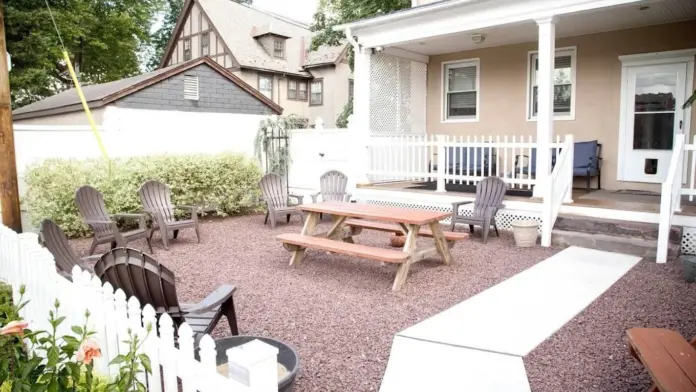
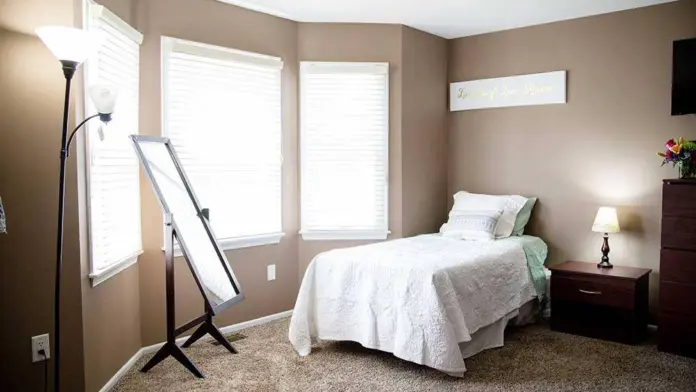
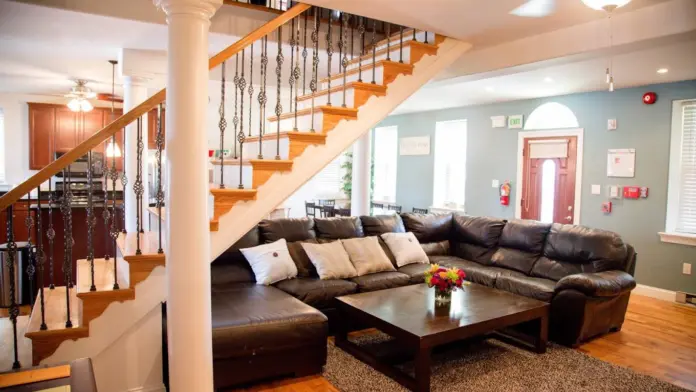
|
Watsonville, CA 10
Top 10 in Luxury Accommodations
Rehab Score
Our Rehab Score is designed to make it easier for you to find the best treatment centers. We combine overall ratings with recent feedback to create a score that reflects a center’s quality right now.
8.76 / 10 | Located in Watsonville, California, Elevate Addiction Services provides alcohol and drug rehab services to men and women suffering from addiction. Their levels of care include detox, inpatient treatment, and outpatient treatment. One of the best ranked Outpatient treatment centers in California, Elevate Addiction Services provides a wide continuum | Treatments Programs Payment Options | Elevate was an awesome experience. I learned a lot about myself and I now have the tools for long term sobriety
Colin Yan
6 days ago
Elevate has been a life changing experience. The staff is very professional and compassionate. The community of clients is very special and the morale is unlike anywhere else. I would highly highly recommend Elevate Addiction Services to anyone struggling with addiction. From detox to the very end of your stay you are well taken care of.
Travis Boe
6 days ago
I have been through other treatment facilities in the past; but Elevate has by far been the best experience I could’ve hoped for. Recovery isn’t just the ability to abstain from substances, but the capability of transforming from within. Not only has Elevate help me appreciate the things within me but everything around me as well. Thank you, Elevate for changing the trajectory of my life and my marriage!!
Michael Amodeo
1 month ago
| 
5 5 


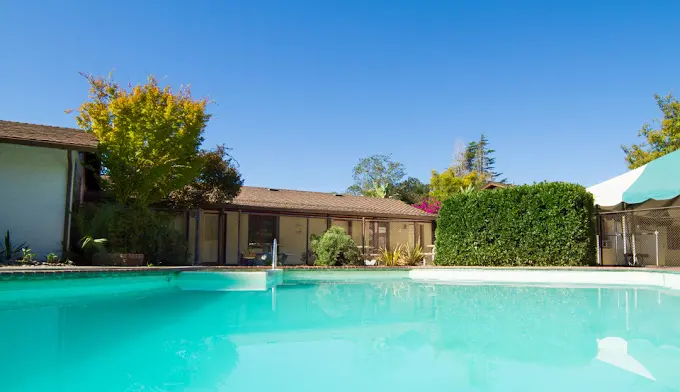
|

About High-End Drug & Alcohol Rehab Programs
About High-End Drug & Alcohol Rehab Programs
Rehab is a course of treatment designed to treat drug and alcohol addiction. Rehab programs take place at a residential facility or an outpatient clinic. With over 10% of people who drink alcohol reporting an alcohol use disorder and 4% of the population with a drug use disorder, the need for rehab and the choice of treatment centers is vast. If you have the means, you may wish to choose a luxury rehab for yourself or your loved one.
Here we explain what luxury drug rehab is and what to expect from a luxury treatment facility. We will examine the benefits and drawbacks of this form of residential treatment, the associated treatment costs, and available funding options.
What Is a Rehab Treatment Facility?
What Is a Rehab Treatment Facility?
Rehab is a professionally-managed treatment option for those with an addiction or dependency. Most rehab centers treat patients with drug addiction or alcohol dependency. Other addictions, mental health concerns, or a dual diagnosis of more than one condition may be treated in specialized rehab centers. Some rehab programs require patients to live at the center, away from everyday temptations and triggers. Other rehabilitation programs are outpatient based, meaning that patients continue to live at home while attending treatment several times a week.
The treatment offered within rehab centers uses a combination of traditional clinical therapies, support groups, and evidence-based holistic methods to give patients the best chance of long-term recovery. In the US, around a million people are undergoing rehabilitation treatment at any time.
What Is Luxury Rehab?
What Is Luxury Rehab?
Rehab centers vary hugely in their amenities, expertise, and treatment methods. Options range from free or low-cost treatment provided by the state or federal government to luxury rehabs that cost large sums of money and are frequented by wealthy people and celebrities. The choice may seem overwhelming, with over 6,500 private for-profit rehab centers in the US alone.
Luxury rehab provides an accredited and professionally managed environment for rehabilitation from various addictions, mental health conditions, and behavioral problems.
Luxury treatment centers are usually residential, although they sometimes provide outpatient programs. They are often located in exclusive areas and offer facilities similar to high-end hotels. A luxury rehab program aims to assist an individual in overcoming addiction and provide the tools to maintain abstinence. This goal is the same as non-luxury or standard rehab. Luxury rehab, however, takes place within a more luxurious environment with a higher level of service, attention, and cost.
What Makes a Luxury Rehabilitation Center Different?
What Makes a Luxury Rehabilitation Center Different?
Luxury rehabilitation facilities often appear more like hotels than a place for people to recover from their addictions. While the focus on recovery is the same as in other rehab facilities, the treatments offered and how they are administered are likely to differ. Examples of what is on offer within a luxury inpatient rehab include the following:
High-quality Amenities
You can expect private rooms and bathrooms within a luxury rehab. Many facilities also have swimming pools, spas, and a choice of restaurants.
Exclusive Location
The centers are usually in exclusive or remote areas with the added advantage of access to the beach, woodland walks, and other environments conducive to successful treatment.
Wide Range of Treatment Options
Luxury rehabs offer a full range of treatments encompassing a wide variety of techniques. Examples of treatments on offer include the following:
When someone undertakes detoxification in a luxury rehab, they are prescribed medications to replace illicit and addictive substances. Their progress and withdrawal symptoms are managed and monitored by highly-trained medical professionals.
Used to achieve one of three ends: detoxification, relapse prevention, or opioid maintenance. Medication alters the brain and body function to assist with abstinence goals and recovery principles.
A form of counseling is part of most rehab programs. Counseling can include group and individual therapy sessions, addiction literature study, and psychotherapy. Counseling within luxury rehab may be more individualized, incorporating family members and more alternative techniques than standard rehab.
Cognitive behavioral therapy (CBT)
A well-used talk therapy often available as part of counseling treatment. CBT relates to a person’s thoughts and how they affect behavior. This can be offered more comprehensively as part of a personalized treatment program at a luxury rehab through more sessions with highly qualified CBT practitioners.
High-quality medical care
Staffing numbers are significantly higher in luxury treatment centers. Luxury rehabs can generally afford to pay their staff well, which means that the in-house healthcare professionals are usually very experienced and well-respected in their field. Professional support is available 24 hours a day with supervision by a multidisciplinary staff.
Most up-to-date treatments
The care received with premium rehab uses the most modern and effective techniques for recovery from addiction. Medical staff within these centers have more time and funding to keep up-to-date with developments in addiction treatment. Furthermore, luxury rehabs are more likely to be able to afford expensive equipment and medications that may be inaccessible to other people or rehab centers.
Choice of complementary therapies
A luxury recovery program may offer additional non-traditional treatments that could be viewed as non-essential and, therefore, less available within other rehab facilities. Examples of these types of treatment include the following:
- Mindfulness and meditation
- Wellbeing therapies, e.g., reiki, acupuncture, massage, and spa treatments
- Adventure and wilderness therapy, e.g., outdoor pursuits and expeditions
- Music therapy, e.g., songwriting, singing, playing instruments
- Equine therapy – care and adventure activities with horses
- Art therapy – artistic creation and appreciation activities
- Diet and nutrition programs
Complementary therapies have been shown to improve long-term relapse prevention. The tools learned during these therapies can improve response to cravings and significantly reduce the use of drugs and alcohol.
What Are the Benefits of Luxury Rehab?
What Are the Benefits of Luxury Rehab?
Rehabilitation treatment is well-studied and is highly effective in helping someone recover from drug or alcohol dependency. Rehab for alcohol addiction results in 59% success rates for people completing a full rehab course. Luxury rehab in a desirable environment may improve these figures as retention rates are higher. Rehabilitation within a high-end facility is often more tailored to the individual, and they benefit from higher staffing levels, more expertise, and premium facilities.
Before embarking on rehab, and especially if budget is a consideration, it is essential to weigh the costs and benefits of attending a high-end rehab facility. The benefits to consider of luxury rehabilitation include the following:
Enhanced Chance of Recovery
The holistic and traditional therapies at luxury rehab centers improve the knowledge and care of the body and mind as a whole. Studies have shown that this combination covers the main tools of relapse prevention: cognitive therapy and mind-body relaxation. An example of this is yoga, which may not be a priority within traditional rehab centers. Still, studies have shown that yogic practices promote recovery from and treatment of addiction.
Individual Attention
Luxury rehabs usually have a lower patient-to-staff ratio meaning more individual attention. By focusing on patients as individuals and treating their specific needs, the treatment plans can more quickly uncover the root cause of addiction and address personal triggers.
Personalized Treatment Plans
High-end rehabs offer treatment plans that are entirely personalized and designed with individuals in mind. Behavioral therapy is commonly used and targeted to personal needs to help patients to modify their attitudes toward drug use, increase healthy life skills and persist with other forms of treatment.
Treatment of Guests
Luxury facility patients are often referred to as clients or guests rather than patients. Guest’ accommodation is often luxurious, with a high standard of facilities and service. For some people, especially those used to a lavish lifestyle, this can help make them feel more at home within the facility and enhance their commitment to stay in treatment and recovery.
Discretion
Luxury rehabilitation centers often provide improved anonymity and discretion due to their location and additional staff training. This is desirable for people with a public-facing lifestyle hence why celebrities and wealthy people often prefer them.
A Relaxing Setting
Luxury inpatient rehabs often sit in beautiful, natural environments promoting calm and well-being. Studies have shown that using nature in therapy and rehabilitation might be an efficient alternative in health care.
A Break From Triggers
If someone can afford to attend a luxury rehab facility, they can generally afford to travel for it and be selective about their chosen location. By attending a rehab center away from home, patients can remove themselves from their usual environment, potential triggers, temptations, and availability of addictive substances.
More Staff and Shorter Waiting Lists
High-end centers have higher staff-to-patient numbers than non-luxury and outpatient treatment facilities. The exclusivity of luxury rehab means that it is often only accessible to certain people, so the demand is not as high. If you can afford luxury rehab, you will likely be able to find a facility that can accommodate you almost immediately, which is beneficial for recovery. Research shows that the most effective way to help someone at risk for developing a substance use disorder is to intervene early before the condition can progress.
Drawbacks to Luxury Rehab Treatment
Although someone may believe that the more they spend on rehab, the more effective it will be, this is not necessarily the case. It is essential to understand that all rehab programs have advantages and disadvantages. Some of the drawbacks to luxury rehab include the following:
Lack of Motivation To Commit to Recovery
The facilities may seem exciting and attractive for guests not used to a luxury lifestyle, more like a holiday than a rehab venue. The amenities may create a distraction to the recovery of a patient. Furthermore, some treatment centers may be more focused on guest experience and amenities than on treatment success.
Less Structured Approach
Luxury centers sometimes offer more freedom and self-direction to patients than non-luxury facilities. Although this may mean that the environment is more pleasant and less controlling, it may not be the best approach for everyone. One study advised that a matching system that assigns patients to high- and low-structure treatments might improve treatment outcomes.
It May Not Cater to All Conditions
Some boutique luxury rehab centers only specialize in specific addictions, for example, narcotics or alcohol. Some centers may not be able to treat co-occurring disorders, or the patient may have additional needs that cannot be met. Researching a potential center before attending is vital to ensure it is appropriate for your diagnosis.
It May Not Offer Value for Money
These facilities cost considerably more than the standard treatment. The extra costs provide state-of-the-art facilities, privacy, personalized treatment programs, and enhanced comfort but may not suit every individual’s requirements and recovery needs. The cost of rehab in a luxury center may result in financial hardship, triggering a return to drug addiction.
Less Group Interaction
A luxury rehab’s smaller and more discrete nature may limit the opportunity for group therapy. The benefits of group therapy are well documented and include the positive impact of peer support, reduced feelings of isolation, and enhanced motivation to recover through witnessing the success of others.
Some Centers May Be Over-subscribed
Demand for the services of the most popular and well-known centers may be high, and you may have to wait for a place to become available. This will, however, typically be for a shorter time than in state-funded centers.
Extended Time Away From Home
A stay in a residential rehab center usually lasts between 30 and 90 days. Often luxury inpatient rehabs are in remote locations meaning that patients are unlikely to be able to receive visitors or interact with the outside world during their stay. For some patients, this may not be practical or possible depending on family and work commitments. However, it is often worth sacrificing and accepting a longer-term treatment plan. One study on women in inpatient treatment showed strong associations between length of stay in treatment and post-treatment abstinence rate. The study suggested that length of stay in residential treatment is a significant determinant of treatment effectiveness.
How Do I Find the Right Luxury Drug Rehab for Me?
Luxury rehab is available to most people who can pay for it. Every patient is unique and successful rehabilitation is due to a combination of the user’s needs and what the facilities are able provide. The most suitable center for you may not be the most local or have the best facilities.
You can contact them directly if you know which rehab center or centers you are interested in attending. Alternatively, there are other resources available that can help you to narrow down your search. Examples of trusted sources of information include the following:
Online search
Websites such as Rehab.com can assist you with searching for treatment centers in the areas you are interested in or that meet your requirements. Find a luxury rehab near you.
Helpline advice
SAMHSA offers a national helpline for advice on all aspects of addiction and addiction treatment. You can call 1-800-662-HELP (4357) free anytime for confidential help finding suitable treatment facilities.
Your doctor
Your doctor will be able to refer you to appropriate treatment centers based on your requirements and medical history.
Friends and family
You may know people who have attended rehab, or your friends or family may have contacts that have resided at a luxury rehab center and have been successful in their recovery. Asking for personal recommendations can be a helpful way to narrow down your options.
What Is the Process of Admission to a Luxury Rehab?
What Is the Process of Admission to a Luxury Rehab?
Some venues require a patient referral from a medical or clinical professional before discussing a potential guest. Once you contact a center requesting admission, they will likely discuss your situation and decide if their services are a good fit. There may be extensive questionnaires and some outpatient meetings, assessments, and discussions before you are accepted. The centers will endeavor to accept people they believe have a likely chance of recovering with the services they provide.
At this stage, it is helpful to have a list of questions ready to help you assess the rehab center’s suitability for your needs. As stated by the National Institute on Drug Abuse (NIDA), no single treatment is right for everyone.
Therefore, it is important to research the center in advance and not just select it based on its name or reputation. Examples of questions you can ask include:
- What facilities are available? You should consider what is essential for you to have and what may be a distraction.
- What are the staffing numbers and their qualifications? With the quality of individual medical care being one of the main advantages of luxury rehab, it is good to ask in advance about the staff and how the treatment center is managed and accredited.
- Does the center specialize in specific conditions? If you have a specific diagnosis or require a particular treatment or medication, it is essential to determine whether treatment for it is provided by the rehab center.
- What are the success rates of treatment at the center? Reviews, reputation, and case studies are valuable indications of the effectiveness of a rehab center.
- How long is the stay? Knowing the proposed length of a stay will make it easier to plan for taking time out of daily life.
- What ongoing support and aftercare are available? Aftercare is crucial once an individual has completed drug or alcohol treatment and is in recovery. There is a continuity of care that should be followed once initial treatment is completed. Ensure that your chosen rehab center is not just looking to make money from you but is committed to your long-term recovery.
- Does the center allow viewings in advance? Some centers will allow prospective patients to visit in advance to get a feel for the center and decide if it is right for them.
- What is the cost of treatment? There are very few people for whom cost is no consideration whatsoever. It is necessary to consider the cost before embarking on treatment to ensure that you can afford to pay for your stay and complete the program designed for you.
Costs of High-end Addiction Recovery Centers
Costs of High-end Addiction Recovery Centers
Premium rehabilitation is relatively expensive, and treatment costs can increase significantly throughout a stay. The type of facility, amenities and treatment options available will determine the price of a residential stay. People think luxury rehabilitation venues are only accessible to celebrities or the rich and famous due to the high fees to become a resident. The facilities are usually available to anyone willing and able to cover the cost. Some treatment providers will be more selective than others, however, about who they choose to admit to protect their patients’ privacy and retain a high-end and exclusive reputation.
Generally, a month’s treatment at a luxury rehab resort for alcohol rehab or drug treatment will cost between $20,000 – $100,000 per month. This is significantly higher than the cost of a non-luxury rehab facility which is around $2,000-$10,000 per month.
The initial residential fees will include many of the facilities, but you may be required to pay for any additional services. These include:
- Additional 1:1 therapy sessions
- Upgraded accommodation
- Optional complementary treatments
- Activities and excursions
- Personal training
- Bespoke dining options
- Extended stay
- Bespoke aftercare
How Can I Pay for a Luxury Rehabilitation Program?
How Can I Pay for a Luxury Rehabilitation Program?
High-end rehab centers are mostly private facilities, and therefore state support may only cover a fraction of the costs, if at all. If you cannot pay yourself or obtain funding from friends or family, alternative financing may be available. Options to explore include the following:
Private health insurance coverage
Depending on your health insurance, you may find that your provider will fund part, if not all, of your luxury drug and alcohol rehab program.
Medicaid provides funding for healthcare, and demand for rehabilitation is high, with 12% of Medicaid beneficiaries over 18 having a substance use disorder. As a government-funded program, it is unlikely that Medicare will fund any treatment deemed unnecessary or luxurious.
SAMHSA (Substance Abuse and Mental Health Services Administration) Grants
As a government scheme, SAMHSA grants are highly competitive, with many eligibility criteria for applicants and treatment programs.
Scholarships
Some residential treatment centers will offer scholarships or grants to patients. This may be part of a community outreach or payback scheme they run or funded by addiction charities. These offers are rare, however, and highly competitive.
Credit from the treatment provider or a private or bank loan
It may be possible to obtain credit to pay for rehabilitation treatment and then pay it back over time. It is important to exercise caution with this approach, as debt can cause stress and be detrimental to a person’s long-term recovery.
Once you have decided rehab will benefit your situation and are weighing treatment options, it is vital to balance the positives and negatives of luxury rehab compared to standard rehab. Luxury rehab has improved facilities and personalized treatment that can benefit long-term recovery, but it comes at a high cost. The stress of additional charges and potential long-term debt may be detrimental to your recovery. Therefore, you need to research beforehand and ensure that you find the most suitable and affordable treatment center for your needs. Ultimately, recovery is possible for everyone regardless of how much they pay for treatment. The priority is for you, or your loved one, to start your journey to a life free from addiction today.
Addiction Centers That Include Luxury Accommodations
Finding facilities near you…
